Five Premier League titles in the last six years is a truly stunning feat from Manchester City, a level of dominance not seen since Manchester United’s iron grip on the title between 1996 and 2001. United’s hegemony then was not purely down to having great players and a great manager. The club were ahead of the curve off the pitch too, expanding Old Trafford every few years, building a new training ground, investing in their youth academy and growing their brand around the world through innovative commercial moves.
That is exactly what City have done over the last decade. But there is one difference: United got ahead of their rivals in an era when clubs were still adapting to football’s new level of popularity thanks to the Premier League, while City are putting their rivals in the shade in an era when football has never been more competitive.
City do have the advantage of the backing of the Abu Dhabi United Group, but they are far from the only club in recent Premier League history to have wealthy benefactors. They have not just thrown money at the club and acted out their Football Manager dreams. They have carefully constructed a project for global domination, hiring the best minds as well as the best players and the best coach.
And they have done that without the historical legacy of many of their rivals such as Liverpool, Arsenal, Manchester United and Chelsea, who were getting rich off the popularity of the early Premier League years when City were yo-yoing between the top flight and second tier – and even third tier – of English football.
In an era when football clubs are effectively multinational corporations, City are the best run company in the most competitive league in the world. Don’t hate them for being better than everyone else.
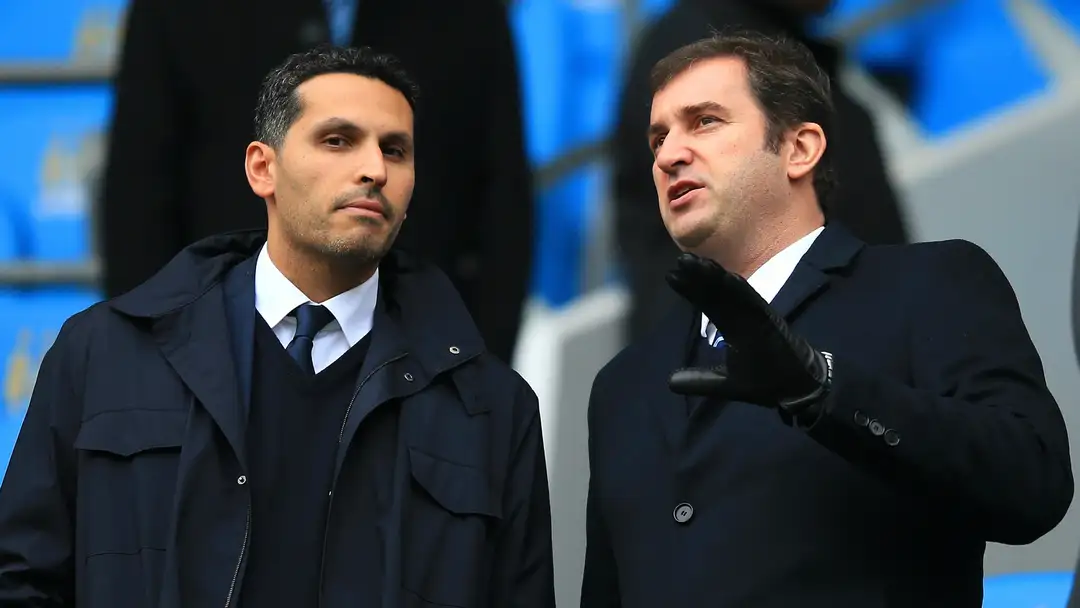
Soriano’s dream
Although City won their first Premier League title in May 2012 thanks to Sergio Aguero’s 94th-minute winner against Queens Park Rangers, the real foundations for City’s current dominance were laid just a few months later, when they hired Ferran Soriano as chief executive. Soriano, the son of a hairdresser and whose first job in business was marketing detergents, had overseen Barcelona’s enormous growth as a brand in five years as the club’s economic vice-president, tripling their revenues between 2003 and 2008.
He resigned from Barca just before Guardiola was hired as coach, and missed out on the three successive league titles and two Champions League wins, but he was well regarded in the industry for his vision. In a 2006 lecture at Birkbeck College, Soriano said clubs should view themselves as multinational corporations like Disney and become global franchises. He has been able to enact that dream at City through the creation of the City Football Group’s vast network of clubs around the world, in Uruguay, the United States, India, Japan, Australia, France, Belgium, Spain and Brazil.
The idea behind creating this network of clubs has been termed ‘glocalisation’, taking a global product and adapting it to local markets. While each club gains more supporters locally, it too generates more brand recognition for Manchester City, increasing their global base of supporters. As well as gaining commercial revenue, City’s network of clubs has also allowed them to do a roaring trade in transfers.
Under Soriano’s tutelage, City have become the club with the highest revenues in world football, earning €713 million, according to the Detroit Money League. Last year, Brand Finance ranked them as the second-most valuable club in the world – only trailing Real Madrid – worth an estimated $1.539 billion (£1.2 billion).
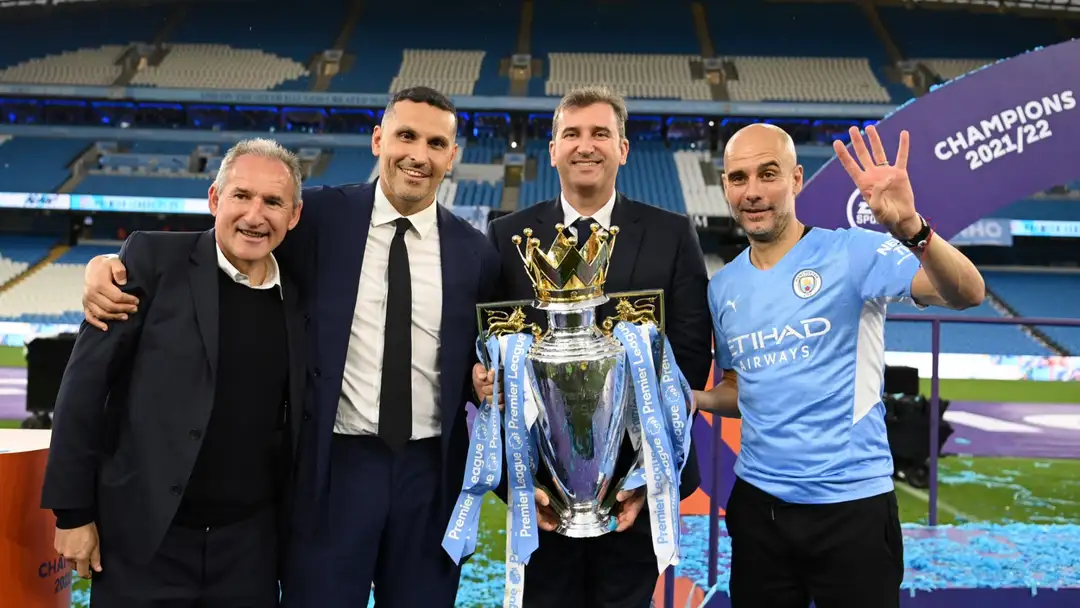
Waiting patiently for Pep
Soriano’s first act was to recruit his old Barcelona colleague, Txiki Begiristain, who had overseen transfers such as Ronaldinho, Deco and Thierry Henry, as City’s sporting director. They wanted to complete the old line up at Barcelona by hiring Guardiola as early as 2012 while he was on his sabbatical after leaving Camp Nou.
When Guardiola instead opted to take over at Bayern Munich in 2013, City were not perturbed, instead promising they would wait until the Catalan had completed his stay in Bavaria. For a top-level club, three years is a long time to wait to get your first choice as coach.
City’s insistence on holding out for Guardiola may have led to the team stagnating under Manuel Pellegrini, finishing fourth in the Chilean’s third campaign while Leicester City won the title. But Guardiola’s sustained success with City has proved he was worth waiting for. Just as he had at Barcelona and Bayern, the Catalan has won a third successive league title, the 12th of his career.
Guardiola has also made a host of tactical innovations such as playing with inverted full-backs and a sweeper-keeper which have been copied around Europe. And he has managed to be ultra-demanding of his players – just witness his run-ins with Kevin De Bruyne – without alienating them.
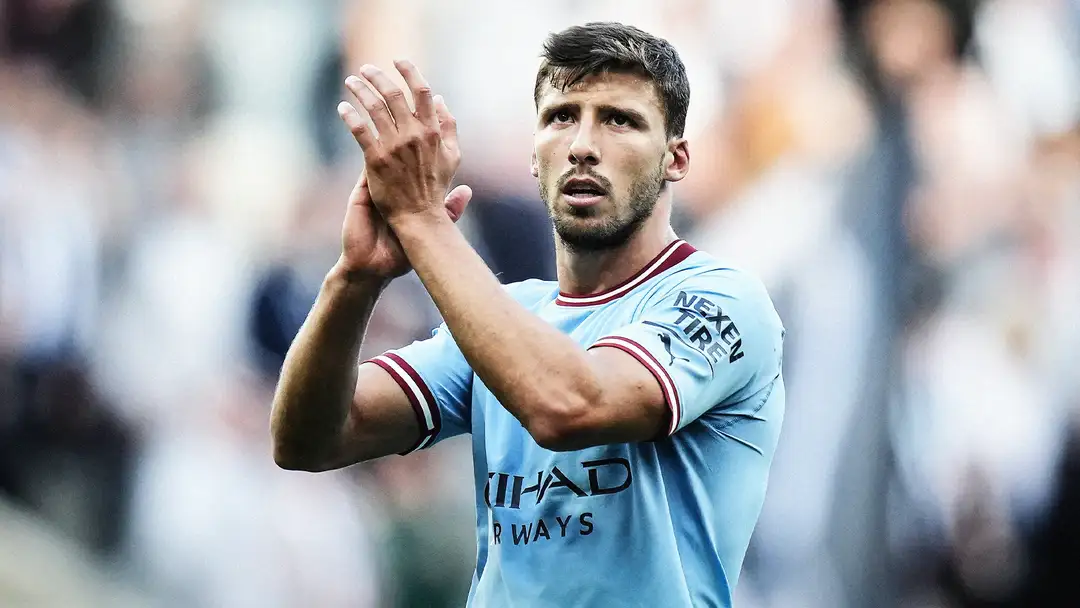
Targeted recruitment and no panic buys
While Chelsea have sought to sign every promising player in the world with no thought about where they will play and United have made a series of panic buys each summer, City have an exceptional recruitment plan.
As soon as Guardiola was appointed, City started building a squad the coach needed to get his team to play how he wanted. One of his first moves was to axe Joe Hart, England’s No.1 goalkeeper and a fan favourite who had played his part in two title successes. The decision caused shockwaves in English football, but Hart’s limited ability with the ball at his feet meant he was ill-equipped to play for the new coach.
City got their first goalkeeping signing wrong when they bought Claudio Bravo, who had a nightmare debut season, but the diagnosis was correct and Ederson, their goalkeeper since 2017, has been key to their five title wins under Guardiola.
Eyebrows were raised when City spent a further £130 million on three full-backs that summer, Danilo, Benjamin Mendy and Kyle Walker. But full-back has proven to be one of the most important positions in football recently, as seen in Liverpool’s success thanks to Trent Alexander-Arnold and Andy Robertson.
City are always looking several moves ahead, analysing which areas of the squad need attention. In 2020, it was central defence and they picked up Ruben Dias, who has become of their biggest leaders and most consistent performers. Last year it was centre-forward, signing the best striker in the world in Erling Haaland, as well as a hugely talented back-up in Julian Alvarez, who cost them only £14 million.
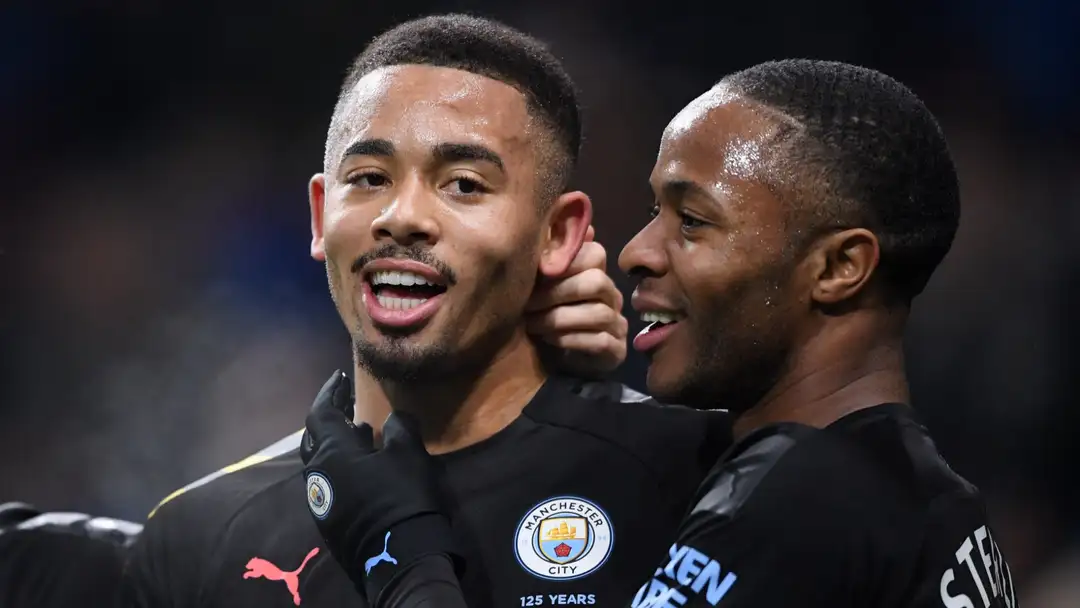
Lower net spend than Palace & Leeds
City’s long-term squad planning has been so successful that, despite signing Haaland and Kalvin Phillips last summer, they were still able to turn a profit on transfers. The sales of Raheem Sterling, Oleksandr Zinchenko and Gabriel Jesus brought in £124m alone, while they made a further £15m moving on four players, including Pedro Porro, who had never played for the first team.
City ended the transfer window with a net spend of -£8.3m, the fourth-lowest in the Premier League, lower than the likes of Crystal Palace and Leeds and only higher than Brighton, Leicester City and Everton. Contrast that with Chelsea’s net spend of £480m, Manchester United’s £203m or Newcastle’s £161m. City are so well run that they do not even need to dip into their enormous wealth to make signings, they are self-sustaining.
Their wage bill is also only the third-highest in the league. City’s squad costs a reported £182m this season, behind Manchester United (£211m) and Chelsea (£212m).

Sustained investment in infrastructure
City have not just spent big on recruitment. Early on, they realised how important youth development would be to their bid to become the top team in the world and spent £200m building the City Football Academy. City’s old training ground was close to Manchester United’s in the village of Carrington, but their current home, which was completed in 2014, is literally next to the Etihad Stadium, giving the club all sorts of logistical and strategic advantages.
The investment has paid off handsomely both in terms of first-team players and transfer fees. Title-winners Phil Foden, Cole Palmer and Rico Lewis all came through the doors of the CFA, while the club have also managed to make handsome returns by selling the likes of Romeo Lavia, Jadon Sancho and Brahim Diaz to other clubs.
City have also steadily expanded their ground, which was renamed the Etihad Stadium in 2010. The capacity was increased from 48,000 to 53,000 in 2014, and last month the club submitted plans for another £300m renovation which will take the capacity up to 60,000. The plans also include the building of a hotel, sky bar and stadium roof walk experience for more revenue opportunities, following in the footsteps of the Tottenham Hotspur Stadium and the renovated Santiago Bernabeu.
The expansion is needed to meet growing demand for tickets – the club’s latest accounts reported 99 percent seat occupancy last season, while high-profile Premier League games plus Champions League fixtures with Real Madrid and Bayern Munich have all sold out.
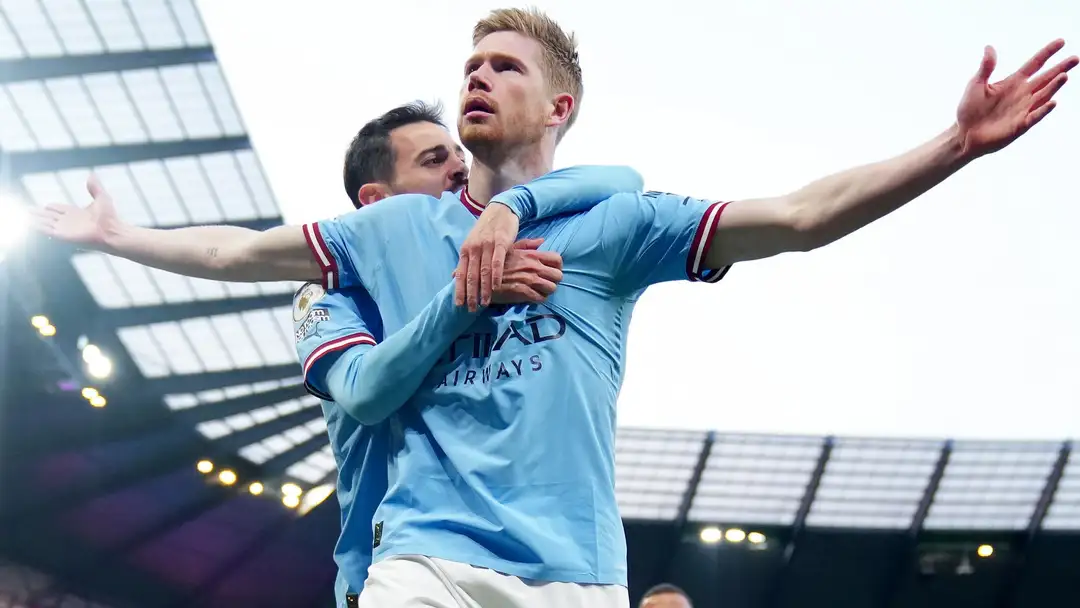
The players are not guilty
There’s no escaping the elephant in the room. City will celebrate this title not knowing how the Premier League’s investigation into whether or not they broke its financial rules will end. The results might not be known for another year or even two, perhaps more. City could still be handed a points deduction in a future campaign, they could have their titles stripped from them, or they could even be expelled from the league.
In the eyes of many rival fans and a number of pundits, their success has already been tainted. They have been charged with making 115 rule breaches between 2009, the year after the Abu Dhabi United Group bought the club, and 2018, the year City won their first title under Guardiola.
The allegations are serious and if City are found guilty then they should be punished appropriately. But even if they are, it should not detract from the fact that Guardiola’s side have taken football to new heights.
The players who have won this title are not guilty of anything other than playing scintillating football and blowing their rivals away.
